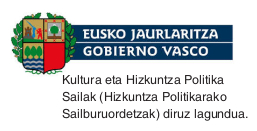Eskola-adineko neska-mutilen portaera agresiboaren azterketa psikobiologikoa
DOI:
https://doi.org/10.26876/uztaro.105.2018.2Gako-hitzak:
Agresioa, Hormonak, Enpatia, Tenperamentua, Eskola-adinaLaburpena
Portaera agresiboan eragiten duten faktoreak ugariak dira: ingurunekoak, genetikoak, fisiologikoak eta sozialak. Ikerketa honen helburua da aztertzea nola eragiten duten zenbait aldagai psikologiko eta biologikok eskola-adineko neskamutilen jokabide agresiboan, kontuan hartuz sexuen arteko ezberdintasuna. Horretarako, luzera erdiko bi fasedun ikerketa egin zen. Bi faseetan neska-mutilen portaera oldarkorra neurtu eta listu-laginak bildu ziren hormona-mailak aztertzeko. Horrez gain, zenbait aldagai psikologiko analizatu ziren. Emaitzek erakutsi zutenez, aldagai psikologiko (enpatia eta tenperamentua) eta biologikoen (testosterona eta kortisola) elkarreraginak neska-mutilen jokabide agresiboa azaldu zuen, baina elkarreragina desberdina izan zen bi faseetan. Hau da, faktore psikologiko eta biologikoen eragina jokabide agresiboan desberdina izan zen adinaren arabera. Emaitza hauek agerian jartzen dute aldagai psikologiko eta biologikoen arteko elkarreragina ikertzearen garrantzia portaera agresiboa azaltzeko.
Deskargak
Lizentzia
Copyright (c) 2018 Uztaro

This work is licensed under a Creative Commons Attribution-NonCommercial-ShareAlike 4.0 International License.




















